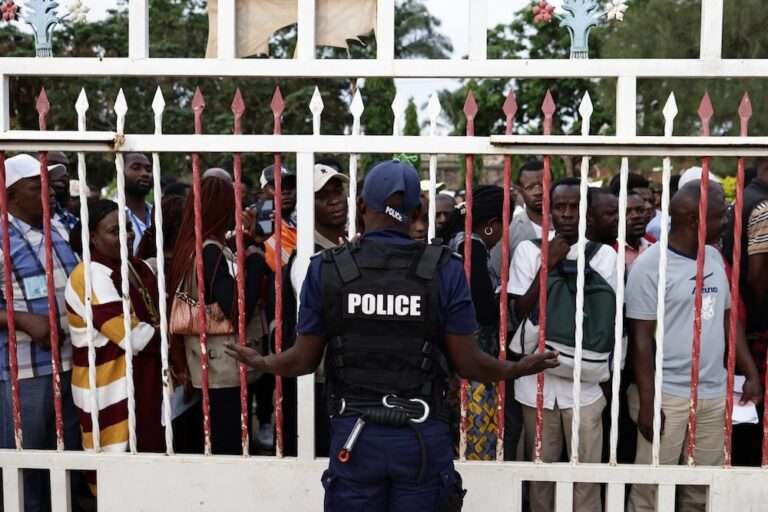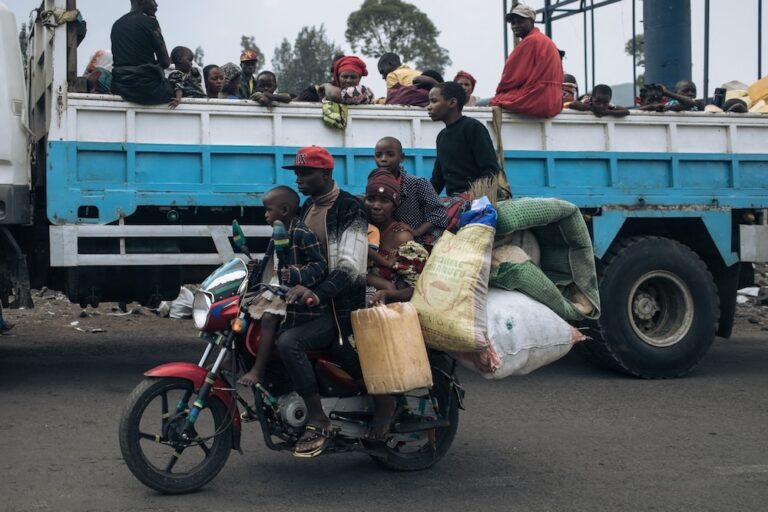(JED/IFEX) – On 5 May 2003, the directors of the largest Kinshasa-based newspapers and JED Secretary-General Tshivis Tshivuadi were invited to a meeting with Justice Minister Ngele Masudi. The parties met to discuss the case of journalist Bamporiki Chamira, who is currently detained at Kinshasa’s Penitentiary and Reeducation Centre (Centre pénitentiaire et de rééducation de […]
(JED/IFEX) – On 5 May 2003, the directors of the largest Kinshasa-based newspapers and JED Secretary-General Tshivis Tshivuadi were invited to a meeting with Justice Minister Ngele Masudi. The parties met to discuss the case of journalist Bamporiki Chamira, who is currently detained at Kinshasa’s Penitentiary and Reeducation Centre (Centre pénitentiaire et de rééducation de Kinshasa, CPRK, former Makala central prison).
During the meeting, the minister, who was accompanied by the State Security Court’s prosecutor and the examining judge in the case, said President Joseph Kabila had asked him to clarify the reasons behind Chamira’s arrest and subsequent detention.
At the very start of the meeting, Minister Masudi explained that Chamira had been detained for reasons unrelated to his work as a journalist. He said the journalist was involved in a plot to assassinate President Kabila, and police had found documents implicating him in the alleged conspiracy during searches of his home.
The State Security Court prosecutor specified that the charge of “conspiring against the head of state” was exempt from those covered in the recent amnesty decreed by President Kabila following the signing of the recent peace treaty in South Africa.
The newspaper representatives in attendance expressed reservations about commenting on the substance of the case against the journalist. They outlined the many irregularities at the time of Chamira’s arrest and asked the justice minister to convey to President Kabila their request that the journalist receive a presidential pardon. Minister Masudi promised to inform the president of their request without delay.


